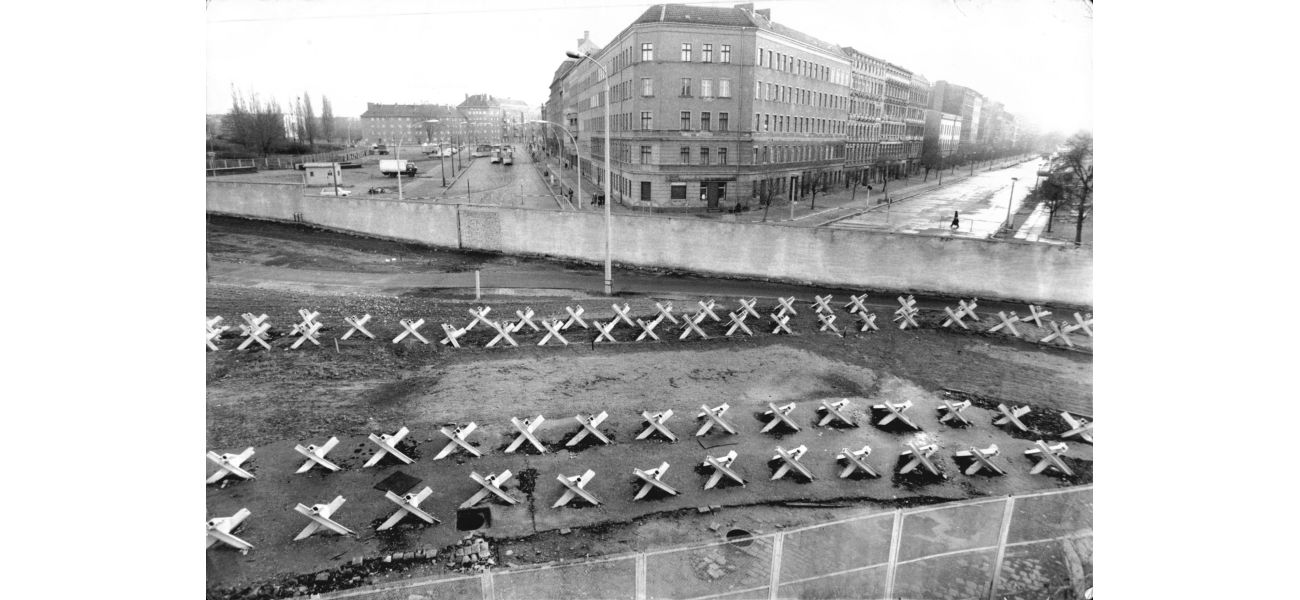One innocent question and a foolish error with lasting consequences.
The wall's downfall marked a new era for Europe.
November 9th 2024.

The Berlin Wall, built in 1961 during the Cold War between the United States and Soviet Union, became a powerful symbol of the divide between the East and West. It was a physical barrier that represented the ideological split between two very different worlds. However, one seemingly small incident during a press conference would ultimately change the course of Europe's future.
During the conference, East German Communist Party official Günter Schabowski was discussing new measures that would allow citizens to apply for travel permits without any conditions. It was an otherwise boring event, but then a journalist asked a simple question: "When does this go into effect?" Schabowski, in a slip of the tongue, mistakenly answered, "Immediately – without delay." Little did he know that this information was supposed to be kept secret until 4am the following day. But with these three words, the Berlin Wall, after 28 years of pain and separation, became obsolete.
Within hours of Schabowski's statement, huge crowds of people gathered at the border, eager to cross into the other side. And eventually, the guards could no longer hold them back. This was the historic moment when East and West merged, ending almost three decades of physical division.
But what led to this unexpected turn of events? Were there any mistakes or human stories that played a role in the fall of the Berlin Wall? Some may argue that Schabowski's slip up was a mistake that ultimately led to the wall's downfall. It created a domino effect, where people flooded the border crossings, and the guards, with little information from their superiors, had no choice but to open the barriers.
Life during the construction of the Berlin Wall was already tense, with a diplomatic stand-off between the East and West that almost led to World War III. General Lucius D. Clay, a senior US diplomat, was sent to Berlin to deal with the situation. However, even he was stopped by East German border guards while on his way to an opera house in the East. This incident, along with many others, highlighted the strict controls and restrictions that were imposed on the people living in East Germany.
But the fall of the Berlin Wall was not just significant because it marked the end of 28 years of physical separation. It was also a turning point in history, as it represented the beginning of the end of the Cold War. The wall had been a symbol of the divide between the two superpowers, and its fall demonstrated that the Soviet Union was no longer willing to defend its sphere of influence in Eastern Europe. This event also realigned European politics, leading to the unification of Germany and a closer European Union.
Since the fall of the Berlin Wall, other walls have been built around the world, such as the one between Hungary and Serbia and Donald Trump's proposed wall on the US-Mexico border. But could a wall be built in the UK or London in the future? Professor Jan Palmowski believes it is unlikely, as walls tend to only divide nations and are often a result of ideological differences, as was the case with the Berlin Wall.
The legacy of the Berlin Wall's fall can still be felt today. It had both positive and negative impacts on the countries involved. While it helped Eastern European countries align more with the West, it also had its costs, such as the loss of jobs and a wave of emigration. However, it also paved the way for progress and growth in these countries, both economically and politically.
In the end, the Berlin Wall may have symbolized the divide between two very different worlds, but its fall showed that barriers can be broken, and unity is possible. It was a momentous event that not only changed the course of Europe's future but also had a ripple effect on the rest of the world.
During the conference, East German Communist Party official Günter Schabowski was discussing new measures that would allow citizens to apply for travel permits without any conditions. It was an otherwise boring event, but then a journalist asked a simple question: "When does this go into effect?" Schabowski, in a slip of the tongue, mistakenly answered, "Immediately – without delay." Little did he know that this information was supposed to be kept secret until 4am the following day. But with these three words, the Berlin Wall, after 28 years of pain and separation, became obsolete.
Within hours of Schabowski's statement, huge crowds of people gathered at the border, eager to cross into the other side. And eventually, the guards could no longer hold them back. This was the historic moment when East and West merged, ending almost three decades of physical division.
But what led to this unexpected turn of events? Were there any mistakes or human stories that played a role in the fall of the Berlin Wall? Some may argue that Schabowski's slip up was a mistake that ultimately led to the wall's downfall. It created a domino effect, where people flooded the border crossings, and the guards, with little information from their superiors, had no choice but to open the barriers.
Life during the construction of the Berlin Wall was already tense, with a diplomatic stand-off between the East and West that almost led to World War III. General Lucius D. Clay, a senior US diplomat, was sent to Berlin to deal with the situation. However, even he was stopped by East German border guards while on his way to an opera house in the East. This incident, along with many others, highlighted the strict controls and restrictions that were imposed on the people living in East Germany.
But the fall of the Berlin Wall was not just significant because it marked the end of 28 years of physical separation. It was also a turning point in history, as it represented the beginning of the end of the Cold War. The wall had been a symbol of the divide between the two superpowers, and its fall demonstrated that the Soviet Union was no longer willing to defend its sphere of influence in Eastern Europe. This event also realigned European politics, leading to the unification of Germany and a closer European Union.
Since the fall of the Berlin Wall, other walls have been built around the world, such as the one between Hungary and Serbia and Donald Trump's proposed wall on the US-Mexico border. But could a wall be built in the UK or London in the future? Professor Jan Palmowski believes it is unlikely, as walls tend to only divide nations and are often a result of ideological differences, as was the case with the Berlin Wall.
The legacy of the Berlin Wall's fall can still be felt today. It had both positive and negative impacts on the countries involved. While it helped Eastern European countries align more with the West, it also had its costs, such as the loss of jobs and a wave of emigration. However, it also paved the way for progress and growth in these countries, both economically and politically.
In the end, the Berlin Wall may have symbolized the divide between two very different worlds, but its fall showed that barriers can be broken, and unity is possible. It was a momentous event that not only changed the course of Europe's future but also had a ripple effect on the rest of the world.
[This article has been trending online recently and has been generated with AI. Your feed is customized.]
[Generative AI is experimental.]
0
0
Submit Comment





